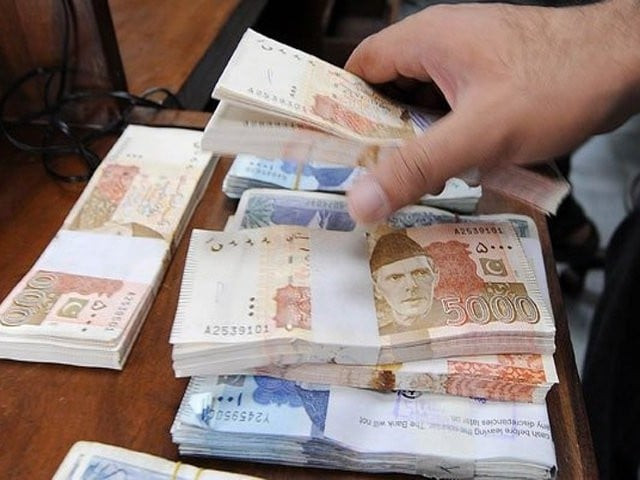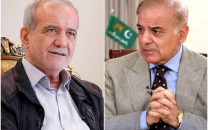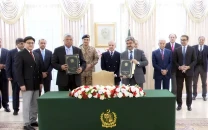Recouping ill-gotten wealth a hard task
Panel for retrieving illegal foreign assets meets today

Prime Minister Imran Khan had persistently advocated retrieving all ‘looted money’. However, financial and legal experts cautioned the PM not to create uncertainty among businessmen.
PHOTO:FILE
The task force is headed by Special Assistant to Prime Minister on Accountability Mirza Shahzad Akbar and comprises, among others, representatives of NAB, FIA, SECP, AGPR, FBR, law ministry and the Foreign Office.
The main purpose of this task force is to maintain coordination among various departments for bringing back laundered money from abroad.
Although legal experts agree that this was not an easy task, government officials insist that there was no harm in making efforts in this regard.
Prime Minister Imran Khan had persistently advocated retrieving all ‘looted money’. However, financial and legal experts cautioned the PM not to create uncertainty among businessmen.
Imran becomes PM, vows ruthless accountability
Experts say that PTI led government should give up this ‘sad approach’. They believe that the government should adopt a ‘carrot and stick approach’ for retrieving the money from foreign countries.
A committee comprising financial and legal experts already advised the top court to “be pragmatic” in its approach, cautioning against aggressive steps that might damage prospects of economic recovery.
Mirza Shahzad Akbar told The Express Tribune that the task force would chalk out modalities for recovering such money from abroad.
The task force, he insisted, had not just been formed for recovering the Avenfield apartments, owned by the Sharif family.
It would also maintain coordination among all relevant agencies and departments for effective investigation in money laundering cases, he said.
Similarly, Mutual Legal Assistance requests will be made in an effective manner, he said.
Earlier, a committee, led by the Governor of the State Bank of Pakistan (SBP), told the Supreme Court that NAB had so far generated 433 Mutual Legal Assistance requests while information had been received in 152 instances.
NAB had initiated nine inquiries in connection with Panama Papers and filed three references in accountability courts. The bureau had so far recovered nearly $22 million from foreign jurisdictions.
Mirza Shahzad Akbar dispelled the perception that bringing unlawful money from abroad was impossible.
“We will also focus on (signing) bilateral agreements with important countries for bringing money (sent) abroad (illegally). Pakistan will have access (to information) about people whose money was lying in Swiss banks by next month (September),” he said.
Imran vows to recover looted money from plunderers
Akbar said that the PTI-led government had initiated austerity measures and accountability.
He rejected the impression that all money lying in foreign accounts was ‘looted money’.
The government, he said, would encourage people to bring back money from abroad.
“We will initiate trust-building measures. We will, therefore, use ‘unlawful money abroad’ and avoid mentioning ‘looted money’.”
An executive member of the Pakistan Bar Council (PBC), Raheel Kamran Sheikh, believes that the government was unlikely to succeed in recovering assets from foreign countries.
“Any legal process initiated for this purpose is likely to be assailed in (local) courts where assets are situated. Keeping in view past experiences, we have had difficulties in seeking deportations of accused from the UK or (for that matter from) any other country with a developed legal system. This matter is far more complicated.”
Ennumerating difficulties in this regard, Sheikh said that Pakistan had no reciprocal arrangements with most states, obligating them to “unconditionally execute orders passed, judgments rendered or processes issued”.
Pakistan asked to make terror financing, money laundering extraditable offences
“Foreign courts, particularly those of developed countries, do not attach (much credence) to judgments or orders of our courts. On contrary, courts in most developed countries, on the pretext of adherence to principles of democracy and enforcement of human rights, have been hearing applicants who assailed the process initiated by the state and closely scrutinising their objections notwithstanding the judgments and orders passed by our courts. Lastly, the policy of cooperation with a requesting state on such matters is invariably guided by political and economic interests of the responding state and courts in these responding states usually abstain from acting (against) the state policy. Although, this aspect does not explicitly form part of their judgments,” he said.
Nonetheless, Sheikh believed, PTI’s media campaign was likely to be effective in keeping the public engaged in anti-corruption discourse.
Otherwise, he said, public would focus on performance, efficiency and delivery “more than anything else”.
Another lawyer insisted that after the accountability court’s acquitted Nawaz Sharif of charges of corruption, securing the Avenfield apartments would “not be an easy task.”
International courts have already raised serious questions over SC judgments in Karkay and Reko Diq cases and western media is already propagating that cases against the Sharif family are politically-motivated.
Interestingly, the apex court has already initiated a process for bringing back money from abroad.
The SBP Governor-led committee had pointed out a number of challenges in this regard, including the lack of robust interagency coordination, legally binding mutual legal assistance treaties with key jurisdictions such as the US, the UK, Canada, the UAE, Malaysia and Thailand, difficulties in tracing overseas assets and delays in the conviction process.
China agrees to give $2b loan to Pakistan
Earlier, another committee, comprising SBP Governor Tariq Bajwa, FBR Chairman Tariq Pasha, then Additional Attorney-General Mohammad Waqar Rana, senior lawyer Khalid Anwar, SC Advocate Ikramul Haq, finance secretary Arif Ahmed Khan, Shabbar Zaidi, Mehmood Mandviwala, Bashir Ali Muhammad, Tariq Paracha and Nisar Muhammad Khan, had proposed ways to trace and retrieve assets from abroad.
However, the committee advised the top court “be pragmatic” in its approach, cautioning against any aggressive steps.
In its 28-page-long report, the committee stated: “An all-out and uncompromising drive to retrieve untaxed funds stashed abroad may create panic and compromise the economic recovery. Such a course becomes even more unattractive in view of the modest chances of success of such an initiative in the context of the limitations of the existing legal framework and the challenges of tracing and taxing the funds in offshore havens and other jurisdiction.”



















COMMENTS
Comments are moderated and generally will be posted if they are on-topic and not abusive.
For more information, please see our Comments FAQ